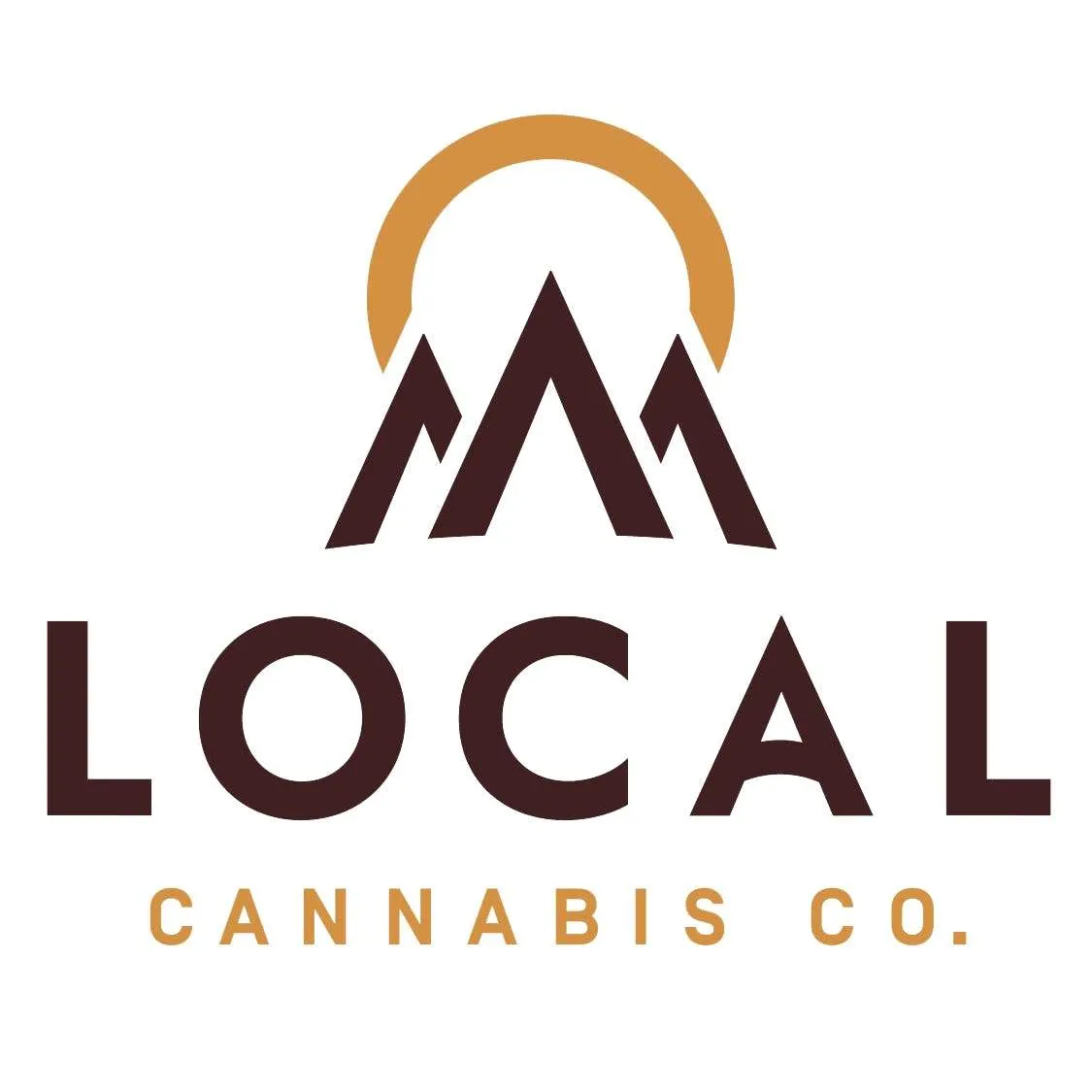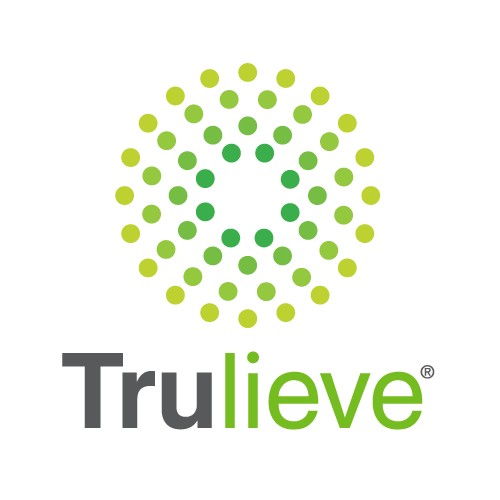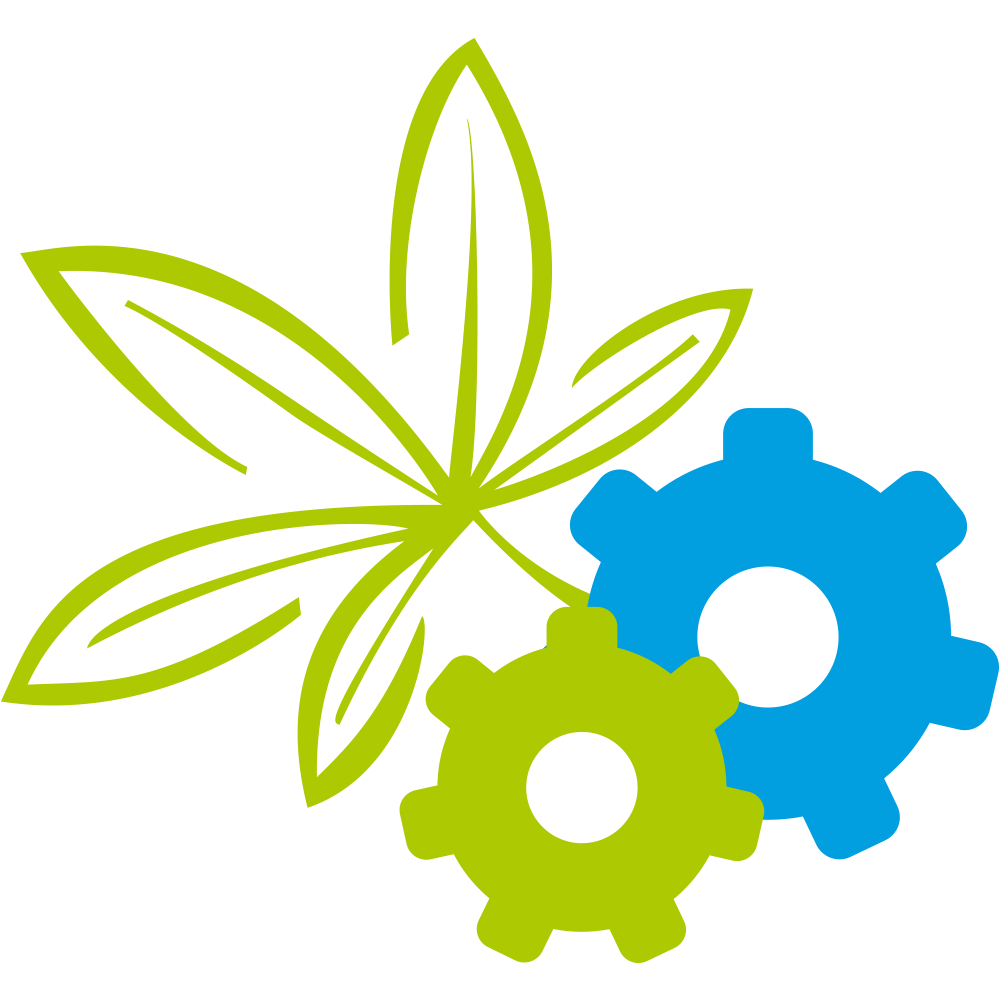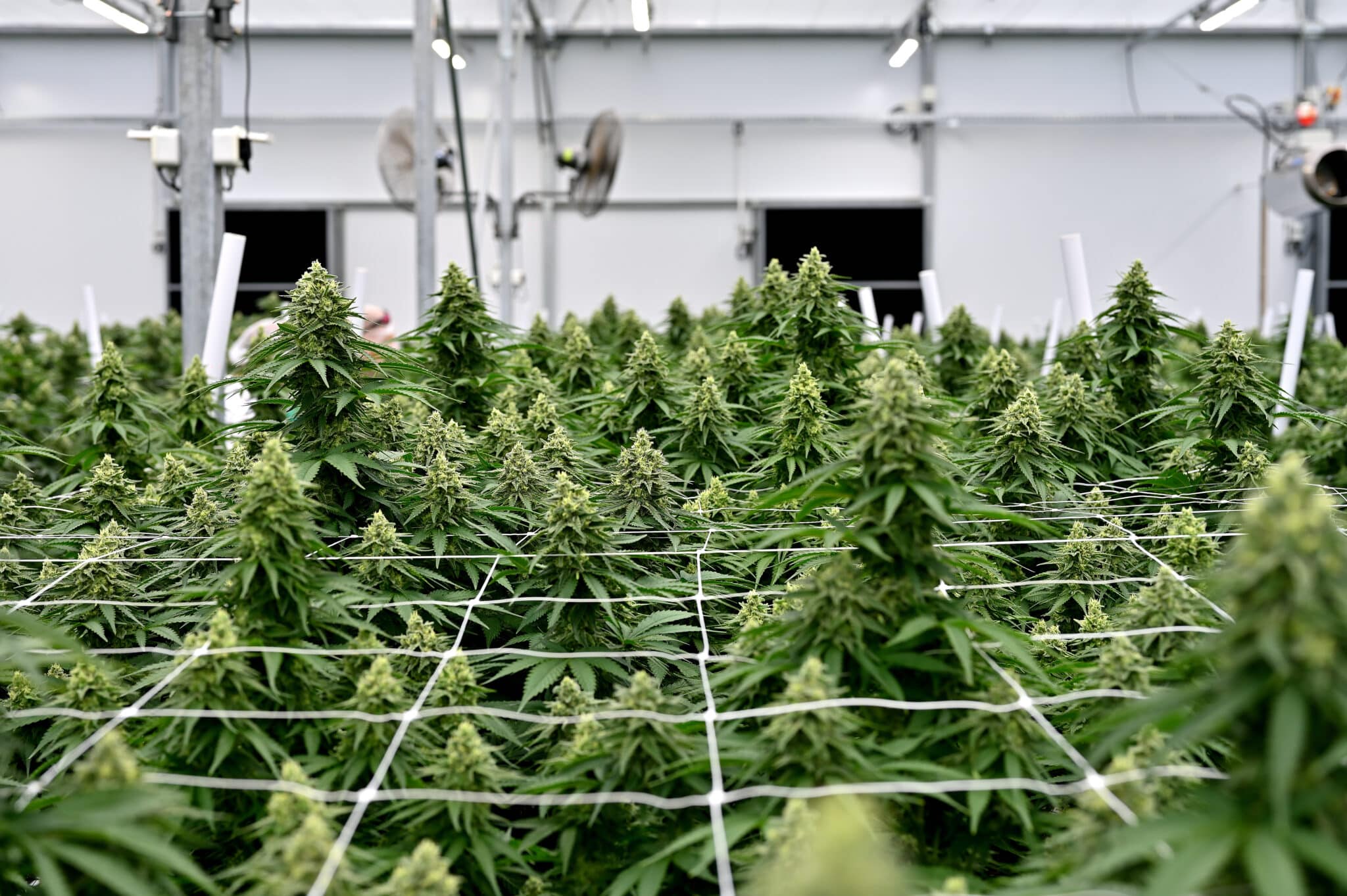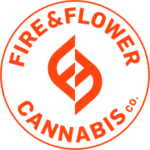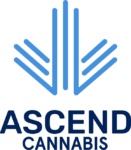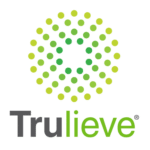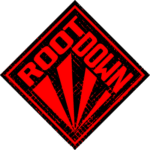Partner with Us to Transform Your Regulatory Requirements with Custom-Built Solutions that Simplify Compliance
We Support Licensed Operations & Government Regulators With Regulatory Services That Utilize Unified Cannabis Standards From "Seed-To-Sale" & Custom-Build Compliant Solutions

Made For: Cannabis Control Boards Department of Agriculture Industry Regulators Public Health Cannabis Licensing State Board of Pharmacy Local Governments Federal Department of Revenue Environmental Protection Safety & Health National Drug Abuse International Standards Consumer Safety National Standards Compliance
Leverage Our Subject Matter Experts (SMEs), Instructional Design Team & Custom Cannabis Regulatory Solutions
Behind each of our custom-built solution(s) is a team of expert consultants and industry advisors ready to help cannabis thrive. Whether it’s new laws in cannabis, industry compliance, or Responsible Vendor Training (RVT) insight, our custom solutions will support your stakeholders.
As a boutique cannabis consulting provider, we’re on a mission to provide you with a tailored business solution that meets your goals. Our cannabis consultation services consider profitability ($$$), social equity, and environmental sustainability to help your cannabis company grow.
We confidentially serve a wide variety of clients ranging from individuals just beginning their journey with cannabis to government regulators creating legal frameworks and Multi-State Operators (MSO’s) that are publicly traded to help them fulfill their goals and succeed in the industry.
Navigation Menu
Regulatory Support
Reduce Operational Costs & Compliance Oversight Burdens As Both Licensed Operators & Gov't Regulators Increasingly Rely On Independent Authorized Training Providers That Support Industry Practices.
Retail Cannabis
Develop detailed standards to guide the safe and productive operation of cannabis retail stores and medical cannabis dispensaries. The standard requires the retail or dispensary operation to demonstrate management responsibility, including facets of worker training, worker practices, cleaning and sanitation, and many more operational standards.
Cannabis Cultivation
Cannabis cultivation is one of the fastest growing agricultural sectors in the world today that also involves a combination of farming and science. Cultivation standards covers all aspects of cannabis cultivation, from production plan to harvest practices. The audit process includes detailed criteria in sixteen categories to guide cultivation operations.
Cannabis Extractions
Cannabis extraction produces a range of concentrated products such as hash oil, shatter and wax. Extraction can also isolate specific cannabis compounds for medicine and research. Extraction standards provide detailed guidance on critical processes such as product purity, safety and traceability. Ensuring a product that is consumer-trusted.
Infused Products
Cannabis-infused product standards detail a full range of food and sanitation criteria along with guidelines for manufacturing, storage, processing, product safety, hazard analysis, equipment, testing and other vital aspects. Edibles, salves, beverages and tinctures can be infused with cannabis compounds to produce a wide range of products.
Security Standards
This FOCUS standard draws on the expertise of law enforcement, security experts, dispensary operators and regulators to define the security guidelines for all aspects of a cannabis operation. It begins with risk assessment and includes requirements for alarm systems, video surveillance, transportation security, and background checks.
Laboratory Operation
Cannabis laboratory standards bring scientific, technical, government and industry experts together to define the rigid requirements for testing and laboratory management. Consumers, regulators, medical professionals and researchers can now access certified specifications to validate product safety, compliance and accuracy for a standardized product.
Packaging & Labeling
Cannabis packaging and labeling standards define the requirements using existing nutraceutical, dietary supplement, and over-the counter standards as a baseline and pharmaceutical specifications as necessary. The development committee adds industry knowledge and state-by-state requirements to the standard to assure consistent and understandable labels .
Environment Sustainability
Cannabis industry sustainability standards set guidelines for environmental concerns such as ecosystem management, water use, energy use, chemical elimination, carbon footprint reduction, recycling and waste management. Sustainability extends viability, employees, community and crisis planning and other factors that contribute to long-term success.
Mandatory Responsible Vendor Programmatic Requirements...
Cannabis Compliance Training Guidance
As regulations continue to evolve, cannabis-specific Responsible Vendor Training (RVT) programs for licensed industry operators are commonly required by government regulators designed to protect consumers and establish industrial operating standards.
- Responsible Vendor Training (RVT): As the world's "most accredited" RVT provider, we're laser-focused on jurisdiction-specific compliance for everything "Seed-to-Sale" and necessary training for the cannabis industry workforce.
- Government Compliance Programs: Meet government requirements (ex. OSHA, HIPAA, EEOC, etc.) across jurisdictions when training is mandated by different regulators and contains varying materials and content requirements.

"Offer Comprehensive Array Of Ready To Use & Implement Training Programs Designed To Train Industry Staff..."

"Custom-Developed Employee Education & Training Plans That Support Award-Winning Cannabis License Applications..."
Employee Education License Application Requirements...
Employee Training Plan Development
Every cannabis application has employee education and training plan requirements that ensure compliance before licenses are awarded (IF you win a high-competitive license) so incorporating external training providers (like us) is needed for workforce development.
- Authorized Training Provider (ATP): Deliver accredited training as an authorized ATP by regulators we ensure workforces are industry-compliant experts that maintain compliance and uphold the best industry standards.
- "In-House Developed" Programs: Create internal training to deliver workforce development that make compliance EASY to implement industry best practices and streamline team and operational efficiency across the board.
Turn-Key Application Writing That Wins Biz Licenses...
License Application Writing Services
Cannabis licensing is complicated and each jurisdiction comes with different regulations whether it is for a license type or local laws that are vital for winning applications to meet gov’t regulatory frameworks, licensing processes, etc. every step from “Seed-to-Sale”.
- Expert Application Writers: Our writing team has submitted numerous award-winning applications for all cannabis license-types that ensures success for licensees while adhering to compliance with government regulations.
- Turn-Key App Management: Turn-key management from "A-to-Z" as we collaborate with stakeholders for application development that provides a seamless submission process for any type of licensee applicant in the cannabis industry.

"Our Subject Matter Experts Are Versatile Professionals Experienced Within All Aspects Of Regulated Cannabis Markets..."

"eLearning Solutions That Ensure Regulatory Goals Are Met & Leave Lasting Value Instilled From ALL Stakeholders..."
Deliver Standardized Training and/or Custom-Develop Programs...
Instructional Design & eLearning Solutions
- Instructional Design (ID) Team: Our ID team works with Subject Matter Experts (SMEs) to create custom courses utilizing ADDIE development model for training: Analyze, Design, Develop, Implement, and Evaluate.
- Educational-Technologies (Ed-Tech): As a total eLearning solution provider, leverage our Ed-Tech expertise to harness technologies that'll innovate learning environments, create accessibility, and support industry growth.
Accreditations & Authorizations
Our "Claim-to-Fame" Is Being The Most Accredited (or Authorized) Training Provider In The Industry To ENSURE What We Do Actually Meets ALL Those Never-Ending Regulator Requirements.

Alaska
Authorized by Alaska's Alcohol & Marijuana Control Office (AMCO) to deliver our entire Marijuana Handler Permit training that is required for all of the state's licensed establishment agents.

Colorado
We're authorized by Colorado Marijuana Enforcement Division (MED) to deliver our entire Responsible Vendor, Cannabis Delivery, Hospitality & Social Consumption required training.

Illinois
We're authorized by the Illinois Department of Financial & Professional Regulation (IDFPR) to provide their state-required Responsible Vendor compliance training for handling cannabis.

Maryland
We're authorized by Maryland Cannabis Administration (MCA) to deliver their Responsible Vendor Training as an accredited government provider that's required for industry workers

Massachusetts
We've been authorized by the Cannabis Control Commission (CCC) in Massachusetts state to provide the Basic & Advanced Responsible Vendor Training Curriculum that is required.

Ohio
Authorized by the Ohio Board of Pharmacy (BOP) as a foundational dispensary & continuing education to certify all employees that are required to be compliant in the state's medical cannabis industry.

Utah
Authorized by Utah Department of Agricultural & Food (UDAF) has authorized as a 3rd-party training program provider to certify all of the medical cannabis agents that are required to be compliant.

Vermont
Authorized by the Vermont Cannabis Control Board (CCB) as an authorized trainer of customer-facing employees of retail cannabis establishments in the state to legally sell products to consumers.

Washington
Authorized by Washington's Department of Health (DOH) to provide their medical cannabis consultant training program that is required in all licensed retail stores with a medical endorsement.

Washington D.C.
We're authorized by Washington D.C.'s Alcoholic Beverage & Cannabis Administration (ABCA) to deliver their medical cannabis industry certification that's required for licensed facilities within the district.

West Virginia
Authorized by West Virginia's Department of Health & Human Resources where we support the Office of Medical Cannabis (OMC) as an authorized state-required industry education provider.
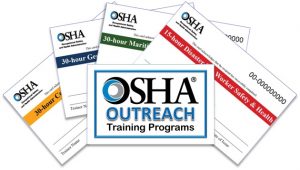
OSHA (USA)
Authorized Outreach Trainers for the Occupational Safety & Health Administration (OSHA) to provide Department of Labor's 10/30-Hour OSHA Card via our approved Authorized Outreach Trainers.
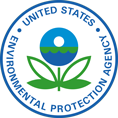
EPA (USA)
Authorized Worker Protection Standard Trainers for the Environmental Protection Agency (EPA) to provide their compliance training for Agricultural Workers & Pesticide Handlers.
Unified Cannabis Industry Standards
By unifying cannabis industry standards demonstrates it demonstrates how committed we are to helping assure the industry the use of safe, quality production methods and a safe work environment. Our curriculum is developed based on current standards established by the World Health Organization (WHO) by adopting Good Manufacturing Practices (GMP).
Using a formalized Body of Knowledge (BOK) refers to sources that’s not related to a single jurisdiction, allowing a truly international cannabis education covering standards developed through participation by representatives of all interested parties, transparent, consensus-based, and subject to appropriate due process mechanisms.
We offer a comprehensive, proactive approach to cannabis quality management through implementing cannabis-specific, detailed safety, process, design, and performance requirements based on existing international quality and safety guidelines in pharmaceuticals, nutraceuticals, food safety, and agriculture.
- Accelerate Innovation: Agree & understand common terminology & procedures.
- Support Innovators: Provide expert knowledge for further industry advancement.
- Exchange Knowledge: Build communities & support industry growth & development.
- Process Innovation: Promote high standards through a culture of growth & open communication.

Complicated Terminology Can Confuse Differences Between Standards, Regulations & Laws... Knowing What They Are & How They Interact Is Essential.
Our Subject Matter Experts (SME's) & Instructional Design Team Have Developed Curricula Implementing International Standards To Answer Unmet Training Needs In The Cannabis Industry That'll Protect Public Health, Consumer Safety & Safeguard Our Communities While Supporting Industry Growth.
Laws vs. Regulations vs. Standards
Industry Standards
Annual Compliance
Government Regulations
Cannabis Standards
Jurisdictional Laws
Industry Frameworks
American Herbal Products Association
Founded in 1982, the American Herbal Products Association (AHPA) is the national trade association and voice of the herbal and natural products industries. AHPA is comprised of more than 350 member companies, consisting primarily of domestic and foreign companies doing business as growers, processors, manufacturers, and marketers of herbal products.
In 2010 AHPA established a Cannabis Committee to under take the task of developing of national recommendations to regulators that address sensible regulatory practices for hemp and cannabis products. It engages in legislative advocacy, educational initiatives, and quality control standards to foster the integrity and sustainability of herbal.
AHPA aims to foster responsible and sustainable trade of herbal products, ensuring consumers can access a diverse range of safe goods with informed choices. Their vision is to make high-quality herbal products easily accessible and widely utilized by consumers. AHPA strives to promote consumer safety and awareness in the herbal product market. Ultimately, they seek to enhance the availability and usage herbal goods.
- Supplemental Knowledge: Empower your organization to unlock their full potential.
- Increase Efficiency: By streamlining operational processes and internal controls.
- Reduce Costs: by minimizing waste and reducing time spent on 'trial-and-error.
- Production Enablement: Scale with standardized solutions & increased productivity.

What Does AHPA Do in the Cannabis Industry? Being the Oldest Non-Profit Organization Specializing in Herbal Industry Service, the Association Focuses on Legislative & Regulatory Advocacy, Research, and Public Education to Support the Integration of Products into the American Lifestyle While Maintaining High Ethical Standards & Environmental Stewardship.
AHPA’s Members Represent The Growers, Processors & Manufacturers Of Herbal & Botanical Products In The Cannabis Industry.
AHPA Guidelines
Cultivation & Processing
Product Manufacturer
Cannabis Distribution
Laboratory Analysis
American Herbal Pharmacopoeia
The mission of the American Herbal Pharmacopoeia® (AHP) is to promote the responsible use of herbal medicines and ensure they are used with the highest possible degree of efficacy and safety. The primary way to accomplish this is through the development of standards of identity, purity, and analysis, as well as to review data regarding the efficacy and safety.
These works will be disseminated through a variety of AHP publications such as monographs, textbooks, and other educational materials; workshops and conferences; electronic media, and other avenues of distribution as are appropriate. AHP began developing monographs in 1994, and intends to produce 300 monographs on botanicals.
Once completed, these monographs, including many of the Ayurvedic, Chinese and Western herbs most frequently used in the United States, represent the most comprehensive and critically reviewed body of information on herbal medicines in the English language, and will serve as a primary reference for academicians and health providers.
- Provide Confidence: Ensure products imported or purchased will be safe & fit for customers.
- Cutting Costs: Lower the cost of compliance & the costs of non-compliance in regulated markets.
- Nurture Quality: Produce high-quality products & services that uphold your brand's reputation.
- Streamline Efficiency: Shorten the time-to-market for new products & categories.

What is the AHP? Established in 1995, the AHP is a non-profit organization with a mission to promote the responsible use of herbal products and medicines.
The AHP Produces Critically Reviewed Documents Called Monographs That Outline the Quality Control Criteria Needed for Ensuring the Identity, Purity & Quality of Botanical Raw Materials. Beyond Monographs, AHP Engages in Research, Education & Advocacy to Elevate Botanicals in Healthcare, Emphasizing Ethical Sustainability.
AHP Standards
Cannabis Monograph
Purpose
Analysis Methods
Standards
Therapeutic Compendium
Literature
ANSI/ANAB Cannabis Standards
The ANSI National Accreditation Board (ANAB) is the largest multi-disciplinary accreditation body in the western hemisphere, with more than 2,500 organizations accredited in approximately 80 countries. ANSI has long-term effort to support safety, quality, and consumer health amid the continued growth of the cannabis industry.
As part of the new program, ANAB will assess and accredit certificate programs as conforming to the requirements of ASTM D8403-21, Standard Practice for Certificate Programs within the Cannabis and Hemp Industries, developed by ASTM International’s Subcommittee D37.06 on personnel training, assessment, credentialing.
ANAB staff were members of this committee and provided significant input on the design of the standard. They facilitate the issuance of trusted, scientific results by assessed and accredited conformity assessment bodies and confidence in the quality and safety of the products and services that they certify. This is our service to our customers and stakeholders.
- Minimize Risks: Stay ahead of regulatory requirements with recognized industry standards.
- Improve Transparency: Enhance operability & reduce product trade costs using transparent practices.
- Promote Efficiency: Support innovation, so US operators can compete globally.
- Utilize Research: Overcome technical barriers by utilizing research-based standards.

The ANSI National Accreditation Board (ANAB) Provides Accreditation & Training Services to the Certification Body, Validation & Verification Body, Inspection & Laboratory Related Communities.
ANAB Assesses & Then Accredits Organizations to International & Domestic Standards & Requirements. ANAB Has Signatory Status Across Arrangements of the International Accreditation Forum.
ANSI/ANAB Accreditations
Certificate Accreditation
Certificate Programs
Testing Laboratory
Analysis Standards
Personnel Certification
Competency Frameworks
ASTM International Standards
ASTM International is an international standards organization that develops and publishes voluntary consensus technical standards for a wide range of materials, products, systems, and services. Over 12,000 ASTM standards operate globally. Combined with their innovative business services and certification offerings, they enhance performance and help boost confidence in products they buy and use.
ASTM standards promote focus on public health and safety, expand leadership position in the standards community, and broaden the international use of ASTM in the cannabis industry. This helps the cannabis industry attract and retain technical experts from around the world by a collaborative environment that meets industry needs.
Adopting ASTM standards ensures our curriculum will always be relevant to enhance the technical quality of standards and related content by providing a best-in-class, scalable development infrastructure. To create a truly international cannabis industry, we must understand global societal needs and service stakeholders through the integration of innovative education solutions.
- Meet & Exceed: Master best standards by with Good Manufacturing Practices.
- Enhance Quality: Ensure the marketplace has only safe products available.
- Scientifically Verify: Ensure your products & facilities adhere to the strictest industry safety standards
- Demonstrate Commitment: Uphold high standards for customer & patient health & safety.

The ASTM International Organization (Not-For-Profit & Non-Governmental) Develops Voluntary Consensus Standards & Defers To Appropriate Gov't Authorities To Determine Regulatory Framework Regarding The Control & Impact With The Cannabis Industry.
In a Short time, D37 has Emerged as the Global Leader in the Development of Cannabis & Hemp Standards & has Become the Trusted Industry Resource.
ASTM Accreditations
Cannabis Standards
Standards Development
Proficiency Testing
Hemp Flower (HFL)
Cannabis Training
Competency Frameworks
International Organization for Standardization (ISO)
International Organization for Standardization (ISO) is an independent, non-governmental international organization that brings global experts together to agree on the best ways of doing things. From quality management in the cannabis industry to Artificial Intelligence (AI), their mission is to make lives easier, safer and better – for everyone, everywhere. Standards define what great looks like, setting benchmarks for businesses.
Standards are the distilled wisdom of people with expertise in their subject matter and who know the needs of the organizations they represent – people such as manufacturers, sellers, buyers, customers, trade associations, users, or regulators. International standards ensure that the products and services you use daily are safe, reliable, and of high quality.
Implementing cannabis industry standards guides businesses in adopting sustainable and ethical practices, helping to create a future where your purchases not only perform excellently but also safeguard our planet. In essence, standards seamlessly blend quality with conscience, enhancing your everyday experiences and choices.
- Management Standards: Ensure quality among processes to reduce product failures.
- Environmental Standards: Learn procedures to help reduce environmental impacts & waste.
- Health & Safety Standards:Health & safety standards to help reduce accidents in the workplace.
- Societal Standards: Commitment to consumer and patient health and safety in the industry.

International Organization for Standardization (ISO) Is an Independent, Non-Governmental International Organization With a Membership of 170 National Standards Bodies. It Brings Together Experts to Share Knowledge & Develop Voluntary, Consensus-Based, Market Relevant International Standards That Support Innovation & Provide Solutions to Global Challenges & Bring Experts Together.
ISO International Standards
Quality Management
ISO Certification
Testing Laboratory
Consumer Safety
ISO Standards
Competency Frameworks
Good Manufacturing Practices
Good Manufacturing Practices (GMP) is the aspect of quality assurance that ensures that medicinal products are consistently produced and controlled to the quality standards appropriate to their intended use and as required by the product specification. The World Health Assembly accepted the first version of the Certification Scheme on the quality of pharmaceutical products.
GMP defines quality measures for both production and quality control and defines general measures to ensure that processes necessary for production and testing are clearly defined, validated, reviewed, and documented and that the personnel, premises, and materials are suitable for the production of pharmaceuticals and biologicals including vaccines.
Good Manufacturing Practices (GMP) and current Good Manufacturing Practices (cGMP) are, in most cases, interchangeable. GMP meaning the basic regulation promulgated by the US Food and Drug Administration (FDA) ensure that manufacturers are taking proactive steps to guarantee their products are safe and effective. cGMP, on the other hand, was implemented by the FDA to ensure continuous improvement in the approach of manufacturers to product quality.
- Quality Assurance: Ensure that manufactured products are designed and developed to meet the requirements.
- Cannabis Products: Aim to mitigate the risks that are inherent in the production process.
- Production Control: Sampling specification & testing to ensure that products are properly tested.
- Risk Management: Evaluation of the risk to quality is based on scientific knowledge to protect the patient.

The GMP Unified Standards for the Cannabis Industry Aim to Elevate Product Quality & Safety by Establishing Comprehensive Guidelines That Span Across All Key Facets of the Industry, Including Cultivation, Extraction, & Retail. These Standards Are Crafted to Be Proactive, Focusing on Quality Management Throughout the Production Process, Rather Than Solely Relying on Post-Production Testing. This Approach Not Only Enhances Consumer Safety but Also Promotes Operational Efficiency & Product Consistency Within the Cannabis Sector.
GMP Standards
Quality Team
Quality Team
Process Validation
Process Validation
Surprise Audits
Surprise Audits
Compliance Training
Compliance Training
Good Laboratory Practices
Good Laboratory Practice (GLP) is a quality system of management controls for research laboratories and organizations to ensure the uniformity, consistency, reliability, reproducibility, quality, and integrity of products in development for human or animal health (including pharmaceuticals) through non-clinical safety tests; from physio-chemical properties.
Good Laboratory Practices are put in place to protect the quality of laboratory data. In any pharmaceutical lab, Good Laboratory Practice is based on written documentation of the work being done. These are Standard Operating Procedures (SOPs). SOPs detail the different practices to follow for the purpose of cannabis quality assurance standards.
The main goal is to promote consistency across all practices in a laboratory setting. SOPs should cover the purpose of a procedure, the responsible personnel, and the step-by-step actions that need to be taken. With clear guidelines, labs can ensure transparency and accountability in the event of any production errors. It is essential that quality is not sacrificed at any production stage.
- Testing Data: Information that will help operate consistently while testing in an impartial manner.
- Quality Framework: Have an effective quality system for planning & assessing lab work.
- Quality Assurance: Control procedures to maintain accuracy & reliability of test results.
- Proficiency Test: Standard tests must be performed by the lab to obtain an initial permit.

Good Laboratory Practices Form the Bedrock Upon Which High-Quality, Reliable & Reproducible Laboratory Work Is Built. By Adhering to These Principles, Laboratories Can Assure Stakeholders of the Integrity & Reliability of Their Data, Thus Contributing to the Advancement of Scientific Knowledge & the Development of Safe & Effective Products & Technologies. Enhanceing the Credibility of Research.
GLP Standards
Quality Control
Quality Control
Standard Operating Procedures
Standard Operating Procedures
ISO Standards
Test Method Transfer
Good Agriculture & Collection Practices
Good Agricultural and Collection Practices (GACP) guidelines were developed to create a single supranational framework to ensure appropriate and consistent quality in the cultivation and production of medicinal plants and herbal substances. They were developed by the World Health Organization (WHO) with the aim of improving the quality of medicinal plants being used in herbal medicines in the commercial market.
The GACP guidelines provide a basis for homogenized national or regional standards for the cultivation and collection of medicinal plants and should therefore be viewed as an effective “working tool” whose benefits are to reduce waste, ensure the quality of raw material, and gain market credibility.
Production and primary processing of medicinal plants and herbal substances have a direct influence on the final quality of active pharmaceutical ingredients (APIs) produced and such production and primary processing actions can constitute the first step in the quality assurance process, which is central to compliance with the GACP guidelines.
- Adverse Events: Understand the use of certain herbal medicines & the effects.
- Safe Medicine: Support affordable and sustainable supply of medicinal plant materials.
- Raw Materials: The safety and quality depend on factors that may be classified as intrinsic or extrinsic.
- Plant Collection: The collection of plants from wild populations gives rise global practice concerns.

What does the USDA do? Serves as a Blueprint for Entities of All Sizes Within the Industry, By Utilizing These Guidelines & Assessment Tools, the Industry Can Assure the Integrity of Herbal Materials Used in Consumer Products.
This Includes Ensuring Accurate Identification, the Absence of Harmful Contaminants, & Compliance With Quality Standards. These Practices Directly Impact the Quality of the Product.
GACP Standards
Botanical Identity
Botanical Identity
Wild Collection
Wild Collection
Agriculture Standards
Agriculture Standards
Cannabis Industry Regulatory Compliance More "Fun" Than Ever Before...
Date: April 18, 2024
From the desk of Evan Erickson
At Green CulturED, as your comprehensive eLearning solution provider, we are dedicated to enhancing understanding within the cannabis industry.
This article is crafted to provide informed insights, educational content, and diverse perspectives, empowering participants to make well-informed decisions regarding the regulatory environment.
We believe that a thorough grasp of the standards being set, the processes involved in their establishment, and the expertise driving these developments is essential.
Our eLearning platform delivers this critical knowledge, offering a complete suite of educational resources designed to demystify the standards and procedures that shape the future of cannabis regulation.
Voluntary Consensus Standards & Regulatory Bodies
In the cannabis industry, the concept of voluntary consensus is crucial for developing standards that shape regulation and practice.
Voluntary consensus involves stakeholders from various facets of the industry collaborating to create widely recognized standards.
These standards are integral to the cannabis sector, often serving as the foundation for or being directly referenced in global regulations.
Prominent organizations such as ISO, ANSI, British Standards Institute, Standards Council of Canada, and ASTM International are known for their role in establishing these voluntary consensus standards.
Defined by federal laws, these standards are crafted by voluntary consensus standards bodies – groups that are recognized domestically and internationally for their systematic procedures in standard development.
These procedures dictate how standards are created, who participates in the development process, and the entities eligible to implement these standards.
In the rapidly evolving cannabis industry, staying abreast of these standards is essential.
They ensure product safety, consistency, and regulatory compliance, fostering trust and reliability across all touchpoints of the industry.
A voluntary consensus standards body is defined by the following attributes:
- Openness: All stakeholders are invited and encouraged to attend.
- Interest Balance: A neutral forum - no one (1) stakeholder group dominates.
- Due Process: Follow a consensus-based process.
- Appeals Process: Handled by both the public & private sector.
- Consensus: Every person has equal say - one (1) vote per interest group.
Voluntary consensus standards are critically important as there are federal laws in place that mandate all federal agencies use technical standards developed by voluntary consensus standards bodies, as opposed to government-unique standards.
This requirement was established as Public Law 104-113, as cited in the National Technology and Transfer Act of 1995 and related OMB Circular A-119.
Unified Cannabis Industry Standards Development
At Green CulturED, our team of cannabis industry experts from across the nation, along with our specialized staff, have developed a series of Recommendations for Regulators within the cannabis sector.
These guidelines are modeled after national standards used in the nutraceutical and botanical fields but include specific provisions for cannabis to safeguard the integrity, quality, purity, and consistency of hemp and cannabis products.
This comprehensive set of recommendations outlines a robust framework for cannabis standards and quality assurances that span from seed to consumption.
Our aim is to equip industry regulators and professionals with the knowledge and tools needed to uphold the highest standards of safety and efficacy in the cannabis industry.
Custom Regulatory Project Engagements
Partnering with Green CulturED for compliance oversight transforms us into an extension of your team, bridging the knowledge gap between the cannabis industry and regulatory agencies.
This collaboration significantly reduces the financial and staffing strain on regulators. Green CulturED actively works with regulators and industry trade groups nationwide, facilitating the ongoing and dynamic development of regulations and standards for medical cannabis, adult-use cannabis, and the hemp industry.
We provide regulatory bodies with access to some of the top technical experts in the field, ensuring delivery of consistent and high-integrity services.
This partnership boosts confidence among patients, healthcare providers, and regulators in the safety and quality of products, affirming that all participants in the program adhere to the most stringent safety and quality standards available.
Third-Party Certification Benefits for Regulators and Consumers
To alleviate the cost and operational challenges faced by regulatory oversight agencies, there is a growing reliance on independent third-party certifications of compliance to bolster enforcement and monitoring activities.
Such certifications confirm adherence to legislative requirements and industry standards, showcasing overall performance against established benchmarks.
Green CulturED functions as this independent third-party, rigorously reviewing and certifying the quality of cultivation and manufacturing processes for cannabis products, as well as management processes for services.
This certification confirms that products and services meet stringent standards for safety, quality, purity, and performance, allowing regulatory bodies to concentrate on crafting overarching policy and technical requirements.
Compliance is validated through the issuance of a third-party certificate and the addition of our seal of approval on product or service labels.
In the constantly evolving landscape of cannabis and hemp product oversight, Green CulturED ensures continuous compliance by verifying adherence to state and local laws, alongside industry standards.
Our comprehensive approach includes staff training, annual and unannounced inspections, and product testing, maintaining the integrity and reliability of our certification process, akin to nationally recognized programs like GAP, GMP, GLP, and ISO.
Types of Certification Offered
Green CulturED certification is accessible to eligible hemp and cannabis companies operating in states that have enacted medical and/or adult-use cannabis laws.
This certification is designed to highlight the commitment of cannabis companies to quality as they provide patients with hemp, cannabis, and derivative products.
Green CulturED offers a range of certification options, from single discipline to multiple disciplines, accommodating various company needs.
All our certifications confirm adherence to local and state regulations as well as industry-specific guidelines.
Certain certification areas may require additional training or compliance measures, particularly for companies involved in manufacturing or laboratory testing operations.
This ensures that all aspects of the operation meet the highest standards for quality and safety, underlining our commitment to excellence in the cannabis industry
Multiple Discipline Certification
For companies engaged in multiple industry operations or those that are vertically integrated, Green CulturED provides multi-discipline certifications.
This certification option allows businesses involved in cultivation, manufacturing, and/or distribution to achieve a unified Green CulturED seal of approval.
This seal represents their commitment to safety across all operational disciplines.
To maintain the highest standards of integrity and safety, Green CulturED upholds a policy where independent laboratory testing services cannot be combined with other operational certifications.
This ensures that our certified laboratories provide unbiased product safety verification.
If a laboratory certified by Green CulturED wishes to obtain certification in an additional discipline, it must not use its facility to meet the testing requirements for that secondary discipline.
This separation preserves the impartiality and reliability of the testing process, reinforcing our commitment to excellence and safety in every aspect of the cannabis industry.
Pre-licensing Certification
Companies interested in joining Green CulturED but not yet licensed to cultivate cannabis or hemp can start their certification journey through our pre-licensing program.
This process begins with an audit before license approval is granted. To secure pre-licensing certification, Green CulturED auditors will perform a thorough review of all the company’s proposed SOPs and employee manuals.
The company must demonstrate that all staff listed in the application have completed Green CulturED training successfully.
Our auditors will compile a comprehensive audit report for the company, detailing any necessary corrective actions for the SOPs to align with Green CulturED’s standards.
All recommended changes must be effectively implemented before receiving final approval from our auditors.
Once these steps are completed, Green CulturED will issue a letter of intent, certifying that the company’s documentation meets all relevant local and state regulations as well as industry guidelines.
Companies engaged in this pre-licensing initiative are subject to a strict timeline to complete their certification process once their license is issued.
Process for Certification
- Introductory Call and Business Review - The certification journey with Green CulturED begins with an introductory call to discuss our services and identify your specific needs, followed by a confirmation email detailing the discussed points.
- Quote - Based on the insights gathered during the introductory call, we prepare a tailored price quote and an estimated timeline for the certification process.
- Contract - A detailed contract is executed, outlining the responsibilities and financial commitments of all parties involved, along with acceptance of terms.
- Preliminary Assessment (Optional) - We offer a preliminary assessment where our procedures for the upcoming audit are discussed, and questions about facilities and processes are addressed.
- Documentation Assessment - An offsite review of your company’s documentation is conducted to ensure that licensing and operational processes meet the required standards and that you are prepared for an on-site assessment.
- On-site Assessment - Our trained assessors conduct a thorough inspection and assessment of your facilities.
- Initial Checklist Results and Corrective Recommendations - You will receive a detailed report of the audit results along with any recommended corrective actions.
- Secondary Audit - If necessary, a follow-up audit is conducted to verify that all required corrective actions have been implemented effectively.
- Certification - Once compliance is confirmed and all standards are met, Green CulturED’s Review Board issues your certification.
- Surveillance Assessment - A year after certification, we send a surveillance assessment questionnaire to detect any significant changes in personnel, equipment, processes, or services. If major changes are identified, an on-site reassessment may be conducted to ensure ongoing compliance with quality management systems."
Preliminary Assessment
Companies seeking certification with Green CulturED may opt for a preliminary assessment of their operations.
This preliminary step allows us to identify any potential weaknesses in the company’s management systems early in the process.
Conducting a preliminary assessment offers significant advantages: it provides companies with ample time to address deficiencies before the formal audits commence, and it aids our team in efficiently planning the certification process.
The scope of the preliminary assessment can be customized according to the needs of the company, ranging from a simple document review to a comprehensive assessment that includes on-site operational observation.
While this initial assessment is optional, it is highly recommended.
It can be a strategic move, potentially saving time and resources by pinpointing and rectifying issues early, thus mitigating the need for costly follow-up actions during the mandatory audits.
Documentation Assessment
The Green CulturED Independent Auditor(s) assigned to your company will collect all relevant local and state licensing documents, as well as management system documents and manuals.
These documents will undergo a thorough review to ensure they meet all local and state regulatory requirements and Green CulturED standards.
Essential documentation should include, at a minimum:
- Standards Manual(s): outlining systems utilized to ensure compliance to state and local laws and regulations.
- Operating Procedures: Including detailed descriptions on how to perform system functions.
- Work Instructions: Defining specific job activities affecting the safety and quality of products and processes.
- Quality Documentation: Demonstrate how quality is managed, including charts, files, inspection and testing records, assessment results, implementable product recall procedures, adverse event reporting records, and any other records of objective evidence.
Should the documentation fail to meet the required standards, the deficiencies will be outlined in an audit report.
The company will then be required to take corrective action before certification can be awarded.
Once Green CulturED is satisfied that the documented management systems are up to standard, a facility audit will be scheduled.
Training Audit
Green CulturED assigns auditors who will conduct an exhaustive on-site assessment of the training operations at your facility.
Prior to their arrival, an audit agenda will be prepared for the licensee, including a detailed daily schedule and any accommodation requests.
It is the responsibility of our auditors to ensure that the company’s management systems meet all applicable standards.
Upon arrival, Green CulturED auditors will hold an introductory meeting and then proceed with a comprehensive facility walk-through.
This includes observing operational activities to verify that the procedures documented during the initial audit have been properly implemented.
Our auditors are authorized to take samples for laboratory testing (where regulations permit), conduct confidential interviews with employees, inspect documents and records, observe work processes, and examine equipment.
The goal of the facility audit is to confirm technical competency through a review of statements, documented procedures, records, and written policies.
If any deficiencies are identified during the audit, our auditors will highlight these to the licensee and document them as required or suggested corrective actions in the audit report, depending on the severity.
The report will detail each deficiency, correlate it to specific standards or policies, and outline the necessary corrective actions to address the issue.
Additionally, Green CulturED audit reports include a recommended timeline for achieving certification, which may vary based on the nature and extent of the required corrective actions.
Exit Meeting
Upon completing the on-site audit, Green CulturED’s assigned auditors will conduct an exit meeting with the company’s management or the designated primary contact person, and regulators as applicable.
During this meeting, a summary review of the facility audit will be presented. Any deficiencies identified during the audit will be discussed in detail at this time.
These deficiencies, along with the corresponding corrective actions, will also be included in the final facility audit report provided to the company.
This ensures transparency and clarity on all audit findings and the steps needed to address them.
Corrective Action
All Green CulturED applicants with identified deficiencies during the audit process will be allotted a reasonable timeframe to undertake the necessary corrective actions.
It is mandatory for these actions to be verified and approved by the assigned Green CulturED auditor(s) before any certification can be granted.
The response to the corrective action must include objective evidence that the required changes have been effectively completed.
Depending on the nature of the deficiency, Green CulturED may require a follow-up on-site facility audit that focuses specifically on the areas of concern.
Certification will not be awarded until all identified deficiencies have been comprehensively and satisfactorily corrected, ensuring compliance and quality standards are fully met.
Final Review, Report, and Appeal Process
Within 10 business days following the facility audit – if no deficiencies are found – or upon verification of completed corrective actions, Green CulturED will issue a confidential report along with a certification decision.
This report may be shared with regulators if required. All relevant documentation will then be reviewed by Green CulturED’s Review Board, which assesses the application materials and audit documentation before making a final decision on certification.
If the Review Board approves certification, the company will be notified immediately, and the appropriate certification materials will be issued.
However, if certification is denied, the company may file an appeal within 10 business days of receiving the decision.
An Appeal Board, comprising at least three members from the Green CulturED Review Board, will handle the appeal.
Each member of the Appeal Board will have sufficient knowledge and expertise in the relevant disciplines to review materials, reports, and deliver an impartial decision.
The Appeal Board will consist of a minimum of three and a maximum of seven members, ensuring a thorough and fair review process.
Annual Audit Reports
Once certification is granted, Green CulturED initiates a review period during which the certified company may undergo random and unannounced audits, as well as product testing.
An annual surveillance audit is required to renew certification. These follow-up audits might involve the submission of documents and/or an on-site visit.
Consumers, healthcare providers, stakeholders, and regulators can submit complaints regarding a certified company directly to Green CulturED.
We maintain a comprehensive record of all such complaints.
Depending on the severity or frequency of these complaints, they may prompt unannounced inspections to ensure compliance and address any issues promptly.
Should circumstances arise that necessitate the suspension of certification, Green CulturED will promptly inform the relevant regulatory bodies, maintaining transparency and accountability throughout the process.
Ongoing Review and Complaint Resolution
Throughout the certification period, Green CulturED’s assigned auditors and staff will continually monitor certified operations.
Should there be any changes in laws or regulations, or if updated standards are released by regulatory bodies, a review audit may be required.
Green CulturED will inform certified companies of any such updates and provide detailed instructions on the actions required to comply, including specific deadlines for compliance.
Additionally, if third-party complaints arise that necessitate an investigation, or if a significant volume of complaints is received, a review audit may be initiated.
Green CulturED is committed to thoroughly evaluating and responding to all third-party complaints to ascertain their validity and seriousness.
Certified companies are obliged to address these complaints within five business days of being notified by a Green CulturED auditor or staff member.
When necessary, immediate corrective actions will be mandated to ensure ongoing compliance and integrity of the certification.
Cannabis Niches
Community Experience
Here Are Some Measurable & Tangible Results From Our Community So Welcome To Our World & We Hope You Find Our Training TRULY Enriching, But Here's What Just A Handful Have To Say.

